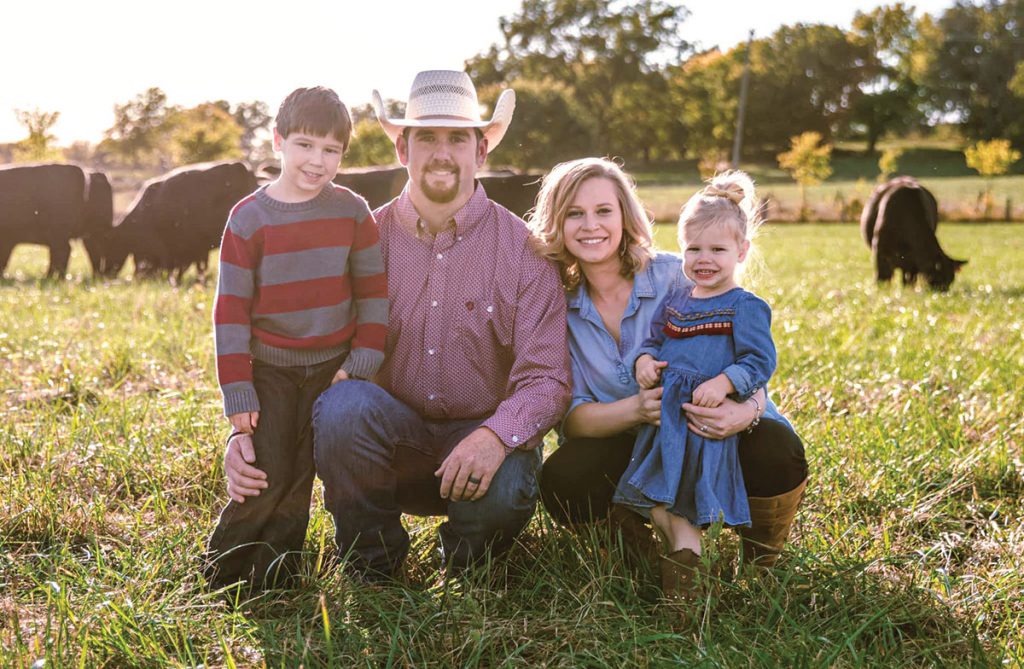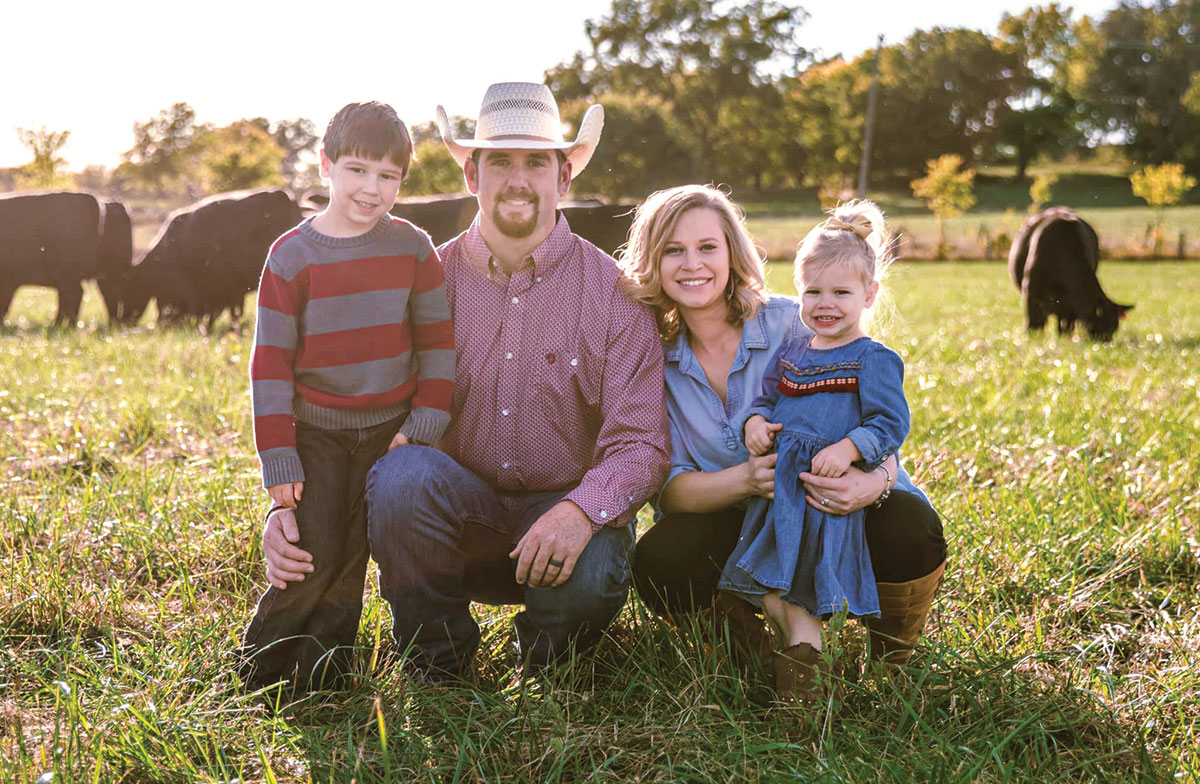
In addition to a backgrounding yard, Tyler and Whitney Shaw work to breed high-quality cattle
Tyler and Whitney Shaw near Walker, Mo., began their cattle operation with a mixed herd of cows on which they put Angus bulls.
“The results were everything we wanted and more,” Tyler said. “Since that time, we have used a select number of Lim-Flex sires.”
By utilizing the two breeds, the Shaws feel they have been able to develop high percentage Angus cattle that are easy fleshing, “good-doing” cattle, that convert feed to pounds on an economic basis.
“We are constantly working to improve our cattle, striving to produce cattle that will feed and hang, while not giving up maternal traits,” Whitney said. “We want a moderate-framed cow that is sound, deep-ribbed and clean made. In our opinion, Angus offers females that fit our wants and are easy to appreciate when evaluated from any angle.”
The Shaws own and operate a backgrounding yard where cattle are fed a TMR ration in pens of approximately 3 acres per pen at a rate of 70 to 80 head per pen. Occasionally, they will graze light weight cattle on fescue while they are prepared for transition into the yard.
“For our operation, we like to keep the average daily gain at 2.5 to 3 pounds per head, per day,” Tyler said. “We find this rate of gain lends us the greatest profitability.”
Each summer, they send yearling cattle to the Kansas flint hills where they graze from May until August.
Whitney said their motto is they try to manage the rangeland and let the cow manage herself.
“We apply fertilizer to 100 percent of our acres each year and it continues to pay us to do so,” she said.
“We rotate our cow herd regularly, based on the time of year, weather conditions, and amount of forage available,” Tyler continued. “We continue to work on drainage and soil erosion, as well as fertility and forage quality.”
They purchase all of their grass hay, but raise 60 acres of silage, primarily for use at the backgrounding yard, using a rotation of Triticale, Sorghum Sudan and corn. They do not farm any acres other than the silage production, but on said acres, they till only every year to plant corn. The remainder of the time, they run only no-till, utilizing herbicides for weed control. They soil test every other year and adjust the fertilizer analysis accordingly.
The healthcare of their livestock is important to them. They use 100 percent Boehringer Ingelheim and vaccinate their cow herd spring and fall, deworming each time. Calves are vaccinated at branding and again at weaning. The cattle they purchase receive two rounds of vaccine and dewormer.
“We AI our yearling heifers using natural service to clean up for 45 days,” Whitney explained of their breeding program. “We use only natural service on the remainder of the cow herd. In our cow herd, we run a 55-day breeding season where 85 percent of our cows will conceive first cycle and the remainder are bred on the following cycle. In the past four years, we have calved our entire herd in 45 days or less. We are extremely happy with these results. We typically breed our heifers April 4-7 and turn our bulls on our cows April 24-26. This allows us to be through the biggest portion of our heifers calving before the cows start.”
Tyler and Whitney are constantly evaluating their cattle and are continuously looking to improve every year with mating.
“We like to try and use equally phenotype, as well as genetics in selection of our herd sires,” Tyler said. “We want a moderate female that is easy fleshing, neat uddered, that is practical in her make with good feet and excellent soundness. We have a no-mercy policy in our cow herd. Every female is expected to breed in a timely manner, calve without assistance, raise that calf to weaning, and be bred back ready to do it all over again while maintaining body condition. If a female fails in any of these regards, she is sold.”
Their future plans are to continue to grow the operation and hope to be able to grow it on such a scale that it will support their children and their families in the future. With that as a goal, they continue working towards the best feeder cattle and the perfect female.
When asked why they are in the cattle busines, Whitney laughed and said, “Some days we think we are in it because we are crazy, however this a shared dream for Tyler and me. We love it. We are extremely happy to have the opportunity to share this way of life with our children.”
Tyler is a full-time rancher and Whitney also works for Purina Animal Nutrition as a livestock production specialist.







